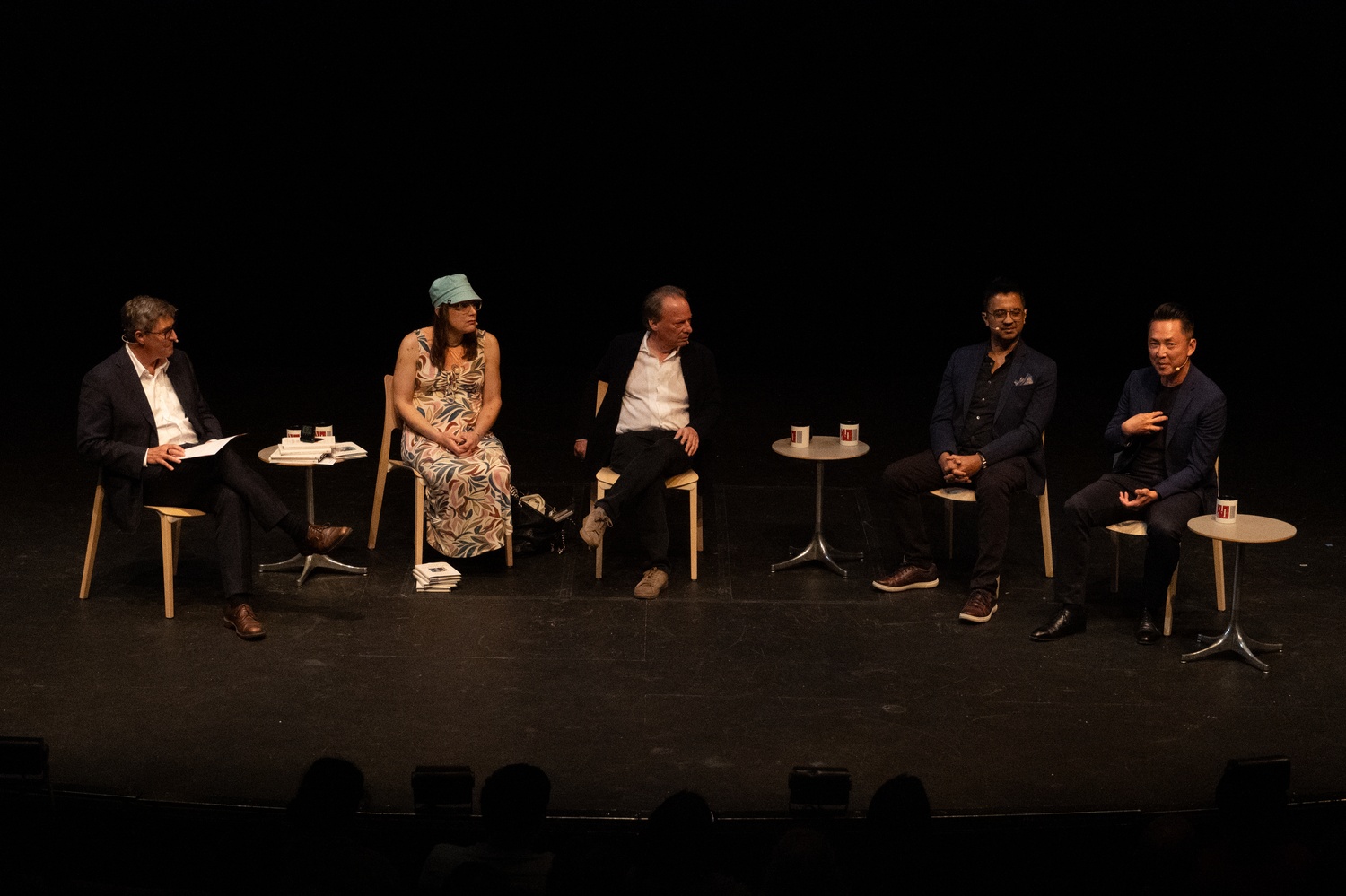
News
Summers Will Not Finish Semester of Teaching as Harvard Investigates Epstein Ties

News
Harvard College Students Report Favoring Divestment from Israel in HUA Survey

News
‘He Should Resign’: Harvard Undergrads Take Hard Line Against Summers Over Epstein Scandal

News
Harvard To Launch New Investigation Into Epstein’s Ties to Summers, Other University Affiliates

News
Harvard Students To Vote on Divestment From Israel in Inaugural HUA Election Survey
Norton Lectures Celebrate 100-Year Anniversary

The Office of the Dean of Arts and Humanities, the Mahindra Humanities Center, and Harvard University Press hosted a discussion commemorating the 100-year anniversary of the Norton Lectures on Thursday.
Founded in 1925, the Norton Lectures feature leading intellectuals of all “poetic” forms across the arts and humanities. Previous speakers include T.S. Eliot and Octavio Paz to Toni Morrison.
For the centenary, Harvard University Press is reissuing five books based on previous Norton lectures with new forwards, including “Other Traditions” by John Ashbery, “This Craft of Verse” by Jorge Luis Borges, “Six Walks in the Fictional Woods” by Umberto Eco, “The Shape of Content” by Ben Shahn, and “Poetics of Music in the Form of Six Lessons” by Igor Stravinsky.
The Press also published a book based on Pulitzer Prize-winning author Viet Thanh Nguyen’s time as a Norton Lecturer in the 2023-2024 academic year.
Moderated by Arts and Humanities Dean Sean D. Kelly, the panel at Thursday’s event featured authors of the forewords, Harvard English Professor Stephanie Burt ’93, The New Yorker writer Adam Gopnik, Harvard Arts Professor Vijay Iyer, as well as Nguyen.
Panelists discussed the importance of the Norton Lectures and reflected on their long-lasting impact on the arts.
“We live in a moment of unique political and social crisis,” Gopnik said. “A healthy democracy, however limited and imperfect, depends, yes, on the rule of law and fair elections, but it depends just as much on having a flourishing pluralistic culture.”
“The idea that you have had lectures on subjects that may at times seem esoteric, that are open to the public — that’s a simple idea of incredible value,” he said. “That’s an accomplishment, and it’s taken thousands of years for human beings to achieve and fulfill.”
The Norton Lectures’ prominence also means the University must guard against “insularity,” Iyer said. He referenced the decision to invite Herbie Hancock, a jazz musician, to give a series of lectures in 2014 as a moment when “new relationships are formed.”
“The floodgates open, and Harvard learns something new about the world,” Iyer said.
Nguyen described the Norton Lectures to be the “final exam” for academics.
Given the “cultural capital embedded in the Norton Lectures,” he spoke of the lectures’ high recognition within the humanities.
“You cannot assume that the audience is going to all be people doing the arts and so on and so forth,” Nguyen said. “But you have to have faith that the arts or the ideas of the humanities can, in fact, actually reach people and touch them no matter their background.”
Corection: September 12, 2025
A previous version of this article incorrectly stated that Harvard University Press will publish a book based on Viet Thanh Nguyen’s Norton Lectures. In fact, the book was published in April this year.
—Staff writer Ellen P. Cassidy can be reached at ellen.cassidy@thecrimson.com.
—Staff writer Catherine Jeon can be reached at catherine.jeon@thecrimson.com. Follow her on X at @cathj186.
Want to keep up with breaking news? Subscribe to our email newsletter.
